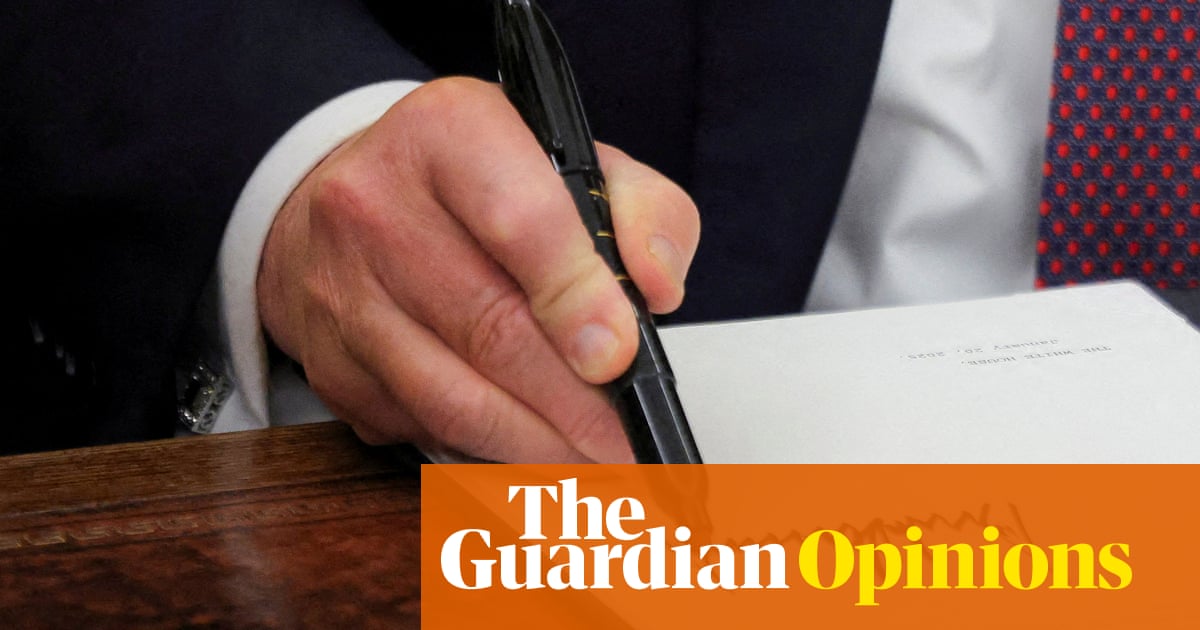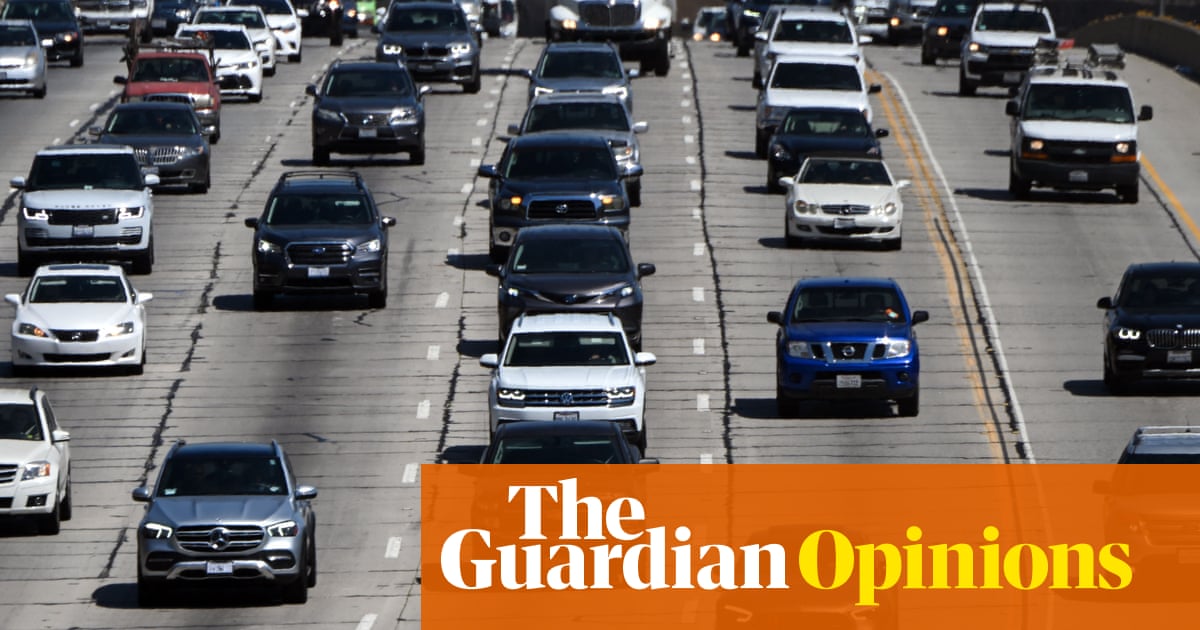Sky-high tariffs that now hang heavily over US-China trade mean, effectively, that they have declared a trade embargo on each other, normally an act of war. The economic consequences for both will hurt.
The US’s $150bn (£113bn) or so of exports to China will fall away quickly, while China’s $440bn worth of exports to the US may drop by up to 75% over the next 18 months, unless some sort of negotiation happens. No one will be spared the effects.
The consequences could tip the US into a mild recession this summer, and are undermining one of the country’s principal weapons, namely the power, leverage and reach of its financial system. The leading indicators of consumer confidence, inflation, and capital spending are all flashing warning signs. It is also an ill wind that last week brought both rising bond yields in the US Treasury market and a falling dollar.
This trade war is distinctly unwelcome for the Chinese Communist party, which only last month revealed its alarm at the underlying fragility of China’s economy. Chinese exports were on fire last year, accounting for half of its growth and expanding three times as fast as world trade. The country ran a $2tn trade surplus in manufactured goods. The government can ill-afford a trade torpedo as it tries to stabilise its beleaguered property sector, along with debt and asset deflation in local governments, and finance.
Donald Trump and Xi Jinping boast resilience and determination, but have reasons to pull back, if not call off, the trade dogs of war. The chances of immediate rapprochement look poor, but not hopeless. China’s ministry of commerce said over the weekend it would ignore future US escalation. The US announced tariff exemptions for smartphones, chips, and electronic equipment, though only temporarily. Some sort of eventual transactional “deal” – some rollback of high tariffs, maybe TikTok, other issues – still seems probable.
The US wants to contain and decouple from China, but has not as yet exercised some of its more potent financial and export control weapons. China has been pursuing decoupling under the slogan of self-reliance for a long time, and if Xi wanted to, he could shut down any chance of talks by devaluing the yuan much more aggressively, and targeting a swathe of US firms.
Trade negotiations would not be a panacea for the fundamental issues that divide these two powers, but they might buy some time and at least keep dialogue going.
Implications for the rest of the world were hinted at, curiously, by the crisis surrounding British Steel and its Chinese owner, Jingye Group. Seemingly a world away, there is though an important connection. In the firm’s UK and French plants, Jingye has been able to make, finish and export steel, branding it “Made in UK” and so avoid steel tariffs and other trade restrictions when selling to the EU and US.
after newsletter promotion
In addition to using investment in this way, China has also had growing recourse to “trans-shipment”, or the practice of using third countries, especially in Asia, such as Vietnam, Cambodia, Thailand and India, and also Mexico, to bypass sanctions and trade barriers, and obfuscate country of origin. About a quarter of all China’s exports are now trans-shipped. US so-called “reciprocal tariffs” on more than 100 countries, with the top tariffs applying in Asia, were designed partly to stop this from happening.
The recently announced 90-day pause in these tariffs (ex-China) were both a reaction to stabilise the US’s battered financial markets, but also a window in which the US hopes that several important countries will negotiate new trade arrangements with Washington, possibly including restrictions on trade and investment with China.
The EU and the UK appear now in “pause” mode with respect to retaliation, formal channels have opened with Japan and South Korea, and the US reports encouraging signals from Vietnam, Cambodia, Thailand and India, for example. It is a complicated picture. Many countries are highly integrated into China’s trading system, but many have also implemented trade measures against China to protect their own manufacturing, jobs and communities. No one wants to lose access to the US consumer market, which is 30% of the world total. China’s mercantilist character means it will not and cannot fill the gap, and wants only to expand its exports.
The manner in which the Trump administration is prosecuting this trade war is chaotic and often barely thought out. Yet, it is important not to lose sight of the reason that trade conflict has erupted in the first place, and that is as reaction to China’s surging trade surplus. This comes from a political system that gives exceptionally large support to its companies, distorts competition, restricts market access and imposes real economic costs on other nations. Caveat emptor.

 1 month ago
26
1 month ago
26

















































